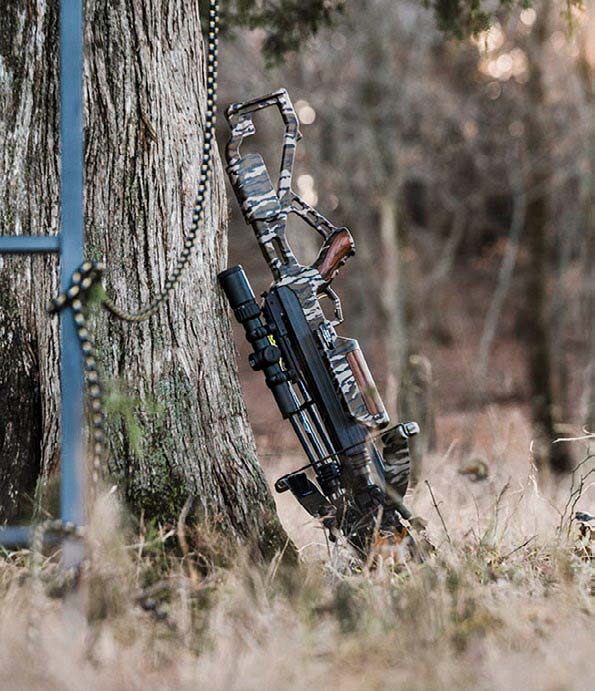Unsure if you should go with a vertical bow or a horizontal bow? Consider these points.
A debate wages among hunters. Some believe crossbows should not be considered legal bowhunting equipment. Others believe crossbows are 100% superior to compound bows and should be legal to the fullest extent. Which stance is right?
I say neither. Any individual who practices sound ethics and follows all hunting regulations is a legitimate hunter, and the choice to use a crossbow or a compound bow is up to that individual alone. In other words, bite your tongue about someone else’s equipment choices. Let’s agree to disagree. Legitimate hunters shouldn’t be shamed for the equipment they choose. The hunting community needs no divisions. As American patriot Patrick Henry said, “United we stand, divided we fall.”
So, if you’re looking to take up hunting in a state where you can legally use either a crossbow or a compound, but are still stumped about which route to go, here are some questions to ask.
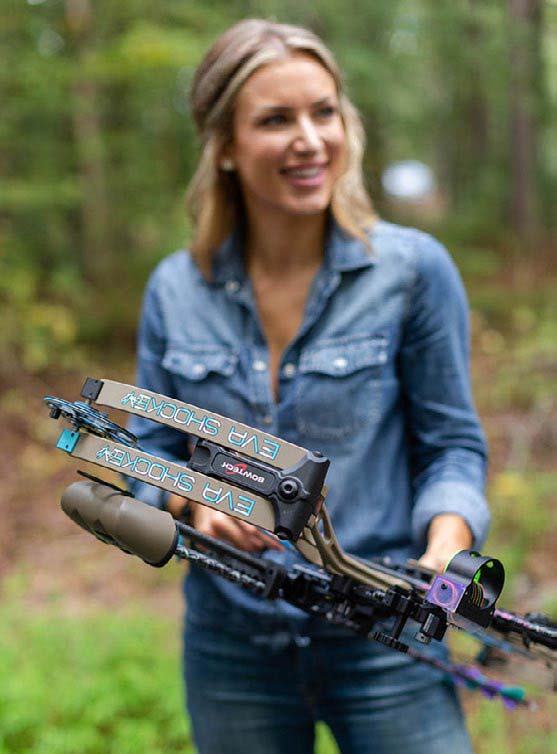
Can I Draw Legal Hunting Poundage?
Many states have a minimum draw weight for bowhunting big game with a vertical compound bow. In Wisconsin, it’s 30 pounds. In Wyoming, it’s 40 pounds for most big game, excluding elk and moose. In that case, 50 pounds is the minimum required draw weight. Start by determining if your state has a minimum in the regulations and what that minimum is.
We all have different bodies. Some folks are less fortunate in the strength department. So, determine if you can comfortably pull your state’s minimum required draw weight. If you can’t, and crossbow hunting is legal, a crossbow makes it possible for you to hunt.
There are many kids who’re unable to draw a compound bow, but they’re able to begin hunting at a young age by alternatively using a crossbow. There are also plenty of women who aren’t comfortable with drawing the minimum hunting weight while standing on an elevated treestand dressed in hunting apparel. A crossbow is a good choice here, too.
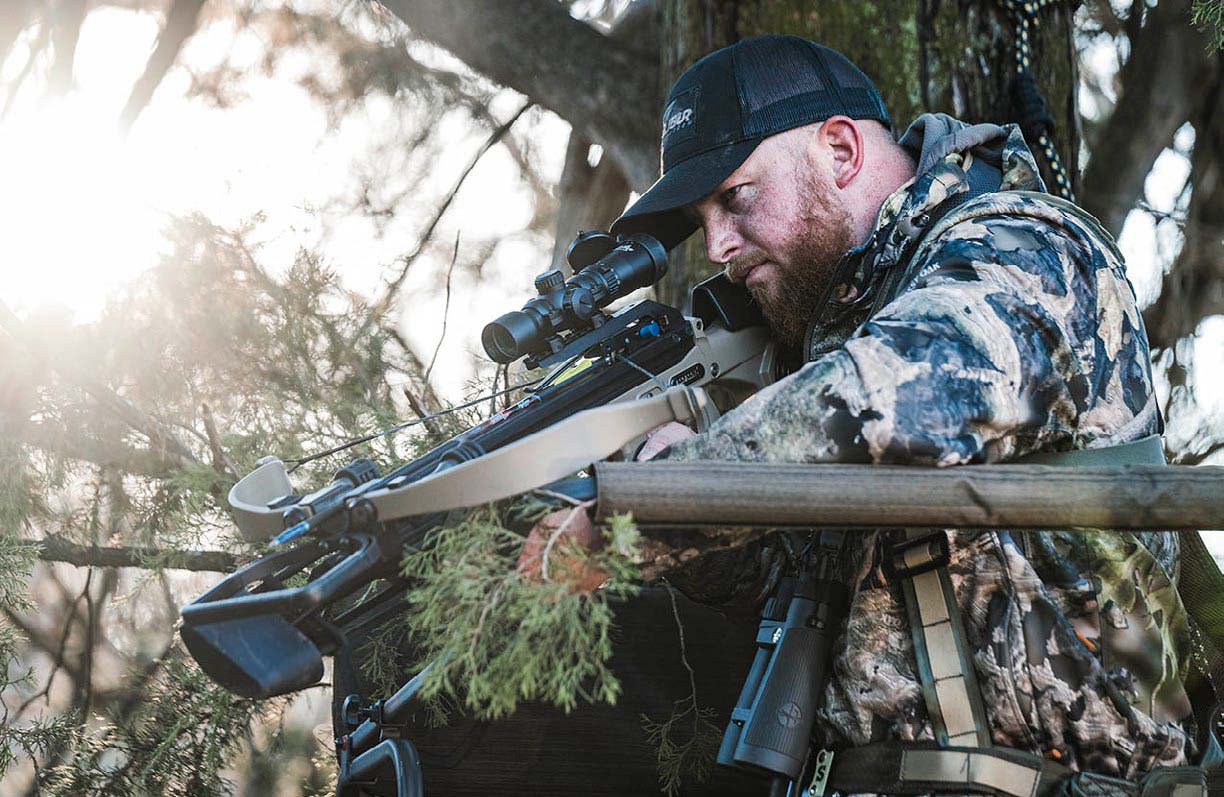
On the other hand, if you can easily pull the minimum hunting weight, there’s no reason not to go with a compound. Watching an arrow lob through the air and hit an intended target is captivating. You also usually need an animal to be in closer range when hunting with a compound. This makes more open-space hunting like plains game and African hunts more difficult. In other words, there’s little room for being sloppy with your hunting strategies. It’s a unique challenge. Outfoxing an animal and taking it with a perfectly placed arrow that you drew back and let go of is an unrivaled feeling. But we’re not done with the questions yet. Onto the next one.
Am I Disabled?
Crossbows are ideal for disabled folks. I know of amputees who’ve been able to participate in bowhunting season by using a crossbow. It gets them off the sidelines and on the hunt. I applaud states/provinces that consider crossbows legal during archery seasons for disabled folks. A disability that prevents or hinders someone from lifting, drawing and shooting a vertical compound bow should not keep them from hunting during archery season.
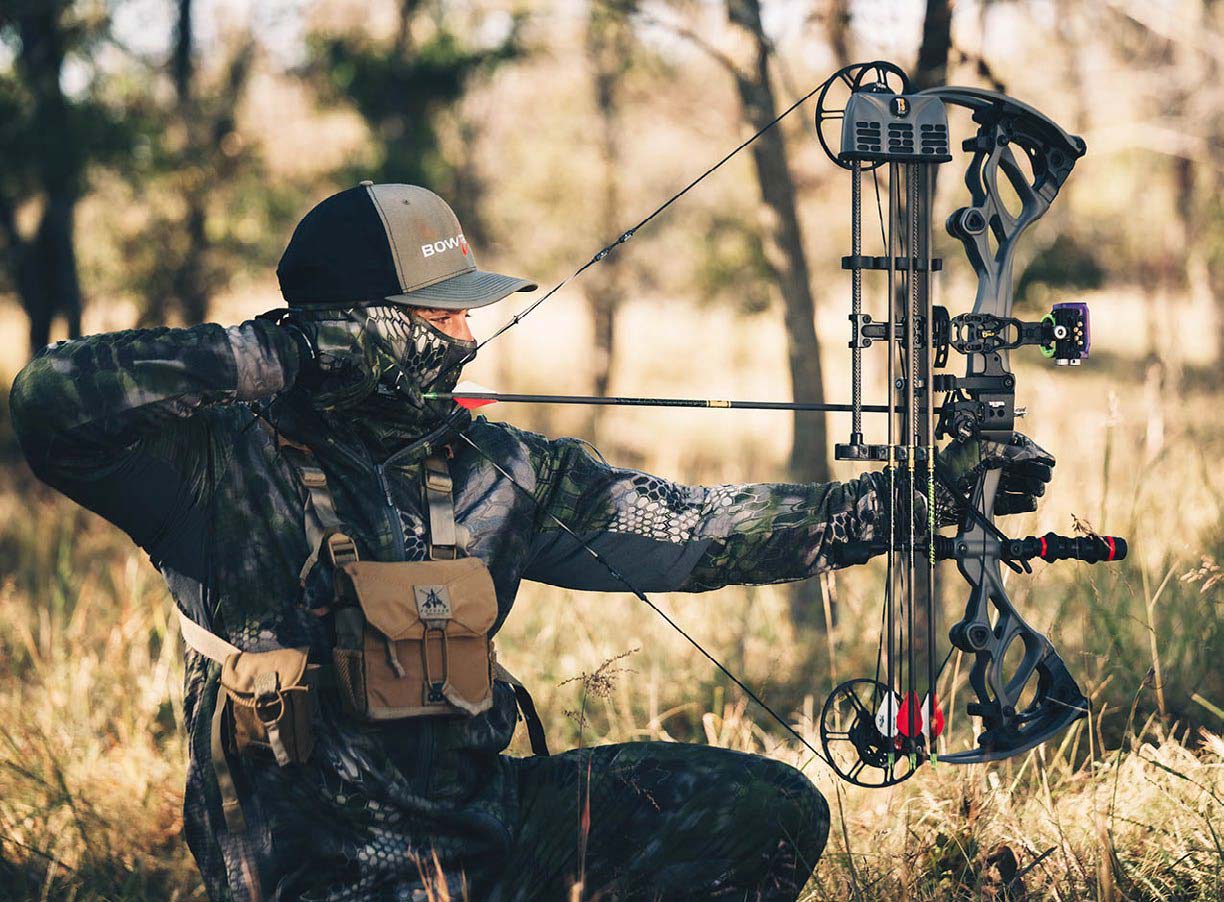
Time for Practice?
Life is far busier for some people than for others. Professional and family life often make it difficult to live a dedicated hunting lifestyle. Still, some busy folks love to hunt—for the getaway aspect of it and/or for the meat—but they have very limited time to practice and hunt.
At this point, choosing a crossbow or compound boils down to ethics. Failing to practice diligently to become proficient with a compound bow, then going bowhunting anyway is unethical. If your schedule allows you to shoot once every couple of weeks, and the groups on your backyard target are inconsistent, I believe you have no business shooting arrows at game. An ethical hunter makes every effort to take animals as cleanly as possible. So, if that means going with a crossbow instead of a compound, then so be it.
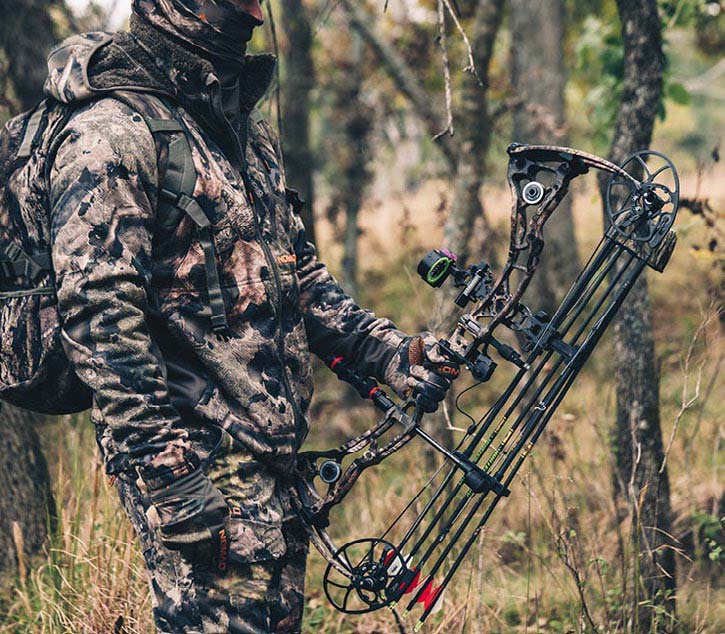
Now, I’m not suggesting that a crossbow is a replacement for practice. You still must become familiar with it, make sure it’s sighted-in and that you’re shooting all kill shots on your targets whenever you practice. However, most folks don’t need to shoot a crossbow daily or even weekly in order to be deadly. So, if you have little time to commit to practice, a crossbow is probably the ethical choice.
If your schedule allows at least a few days weekly to practice, and you find it enjoyable and relaxing to shoot arrows, then the more time-involved commitment of using a compound bow is probably up your alley (just like it is mine). I’m not against crossbows. I just think I’d find it boring to shoot only a couple of arrows every two weeks rather than a couple hundred of them. Because of the time and effort it takes to reload a crossbow, it is not very practical to shoot hundreds of arrows in a week. So, if you love the aspect of shooting a lot of arrows every week, go with a compound bow.
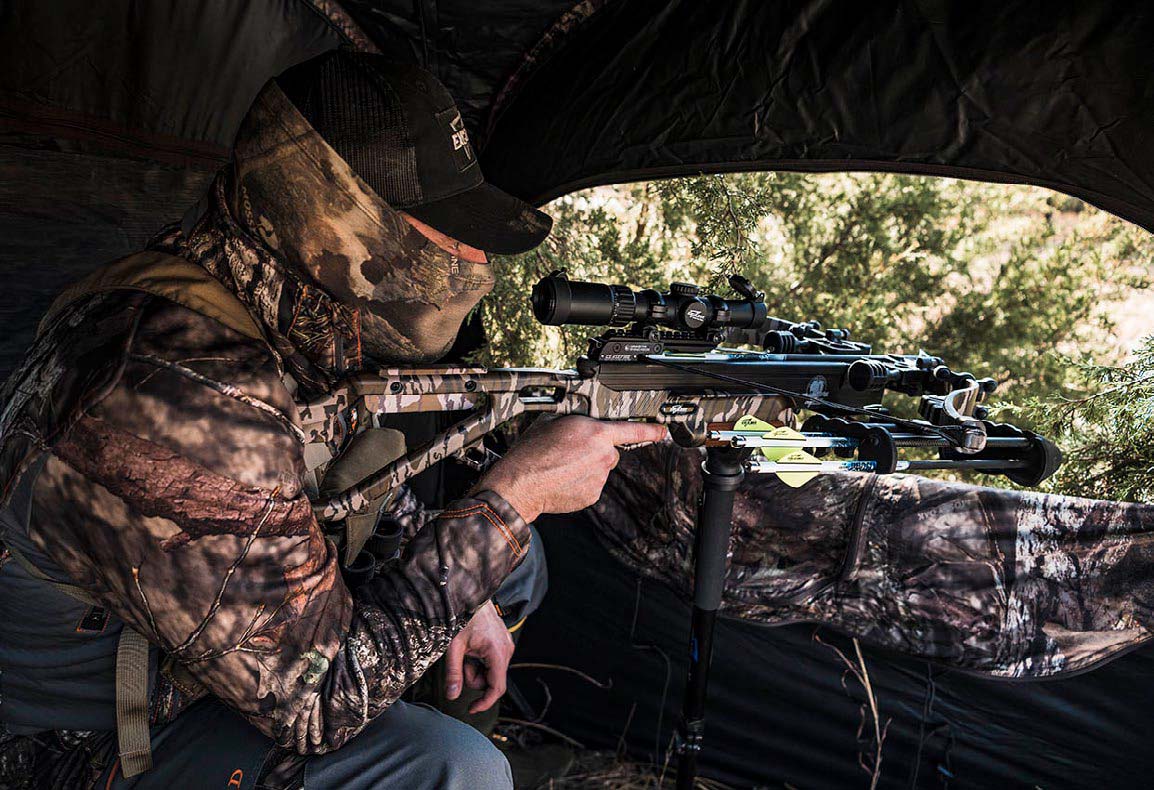
Am I Being Lazy?
I’m admittedly annoyed whenever lazy or arrogant people hunt with crossbows because it seems easier. To me, using a crossbow on the premise that “it’s like cheating,” as some people have bragged, is a poor motive. Success in hunting requires work, and part of the thrill is that it is challenging. I believe that folks who try to eliminate the challenge so that they can be successful without working hard are usually the ones who clock out early on the job and look for handouts in life. There’s nothing wrong with hunting with a crossbow paired with the best crossbow scopes, but what’s your motive?
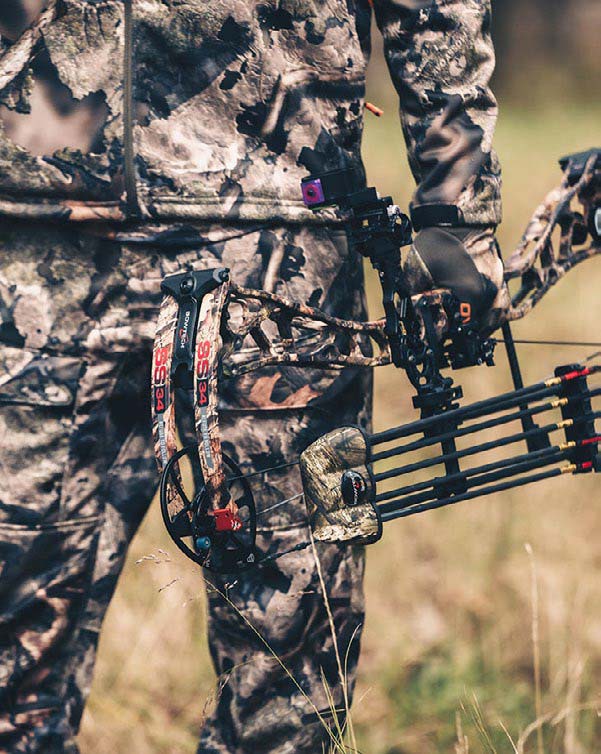
Really Cold Temperatures?
Bundling up for subzero temperatures restricts a lot of motion. It might be easy to draw a compound bow while wearing a hoody, but that’s not so much the case when you’re dressed to survive very cold weather. A lot of things can affect your bow accuracy in a cold-weather situation. The bowstring could catch your bulky sleeve. You could anchor differently because your hood interferes. Hunting in cold weather with a compound bow isn’t for the faint of heart. It’s far from impossible, but a lot can go wrong. If you find the bulk of warm apparel too cumbersome for a draw-and-shoot compound, a crossbow is perhaps the better and more ethical fit.
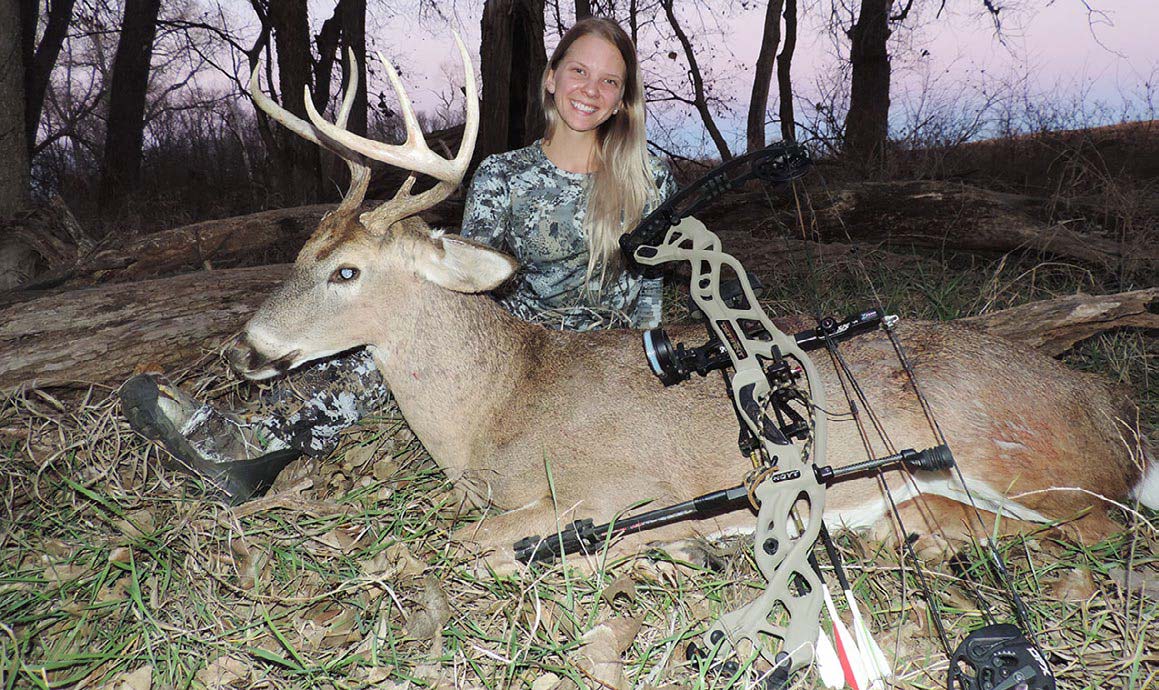
Conclusion
Here are a few final thoughts. I’ve heard a handful of people classify crossbows as, “just like shooting a gun.” The way you shoulder a crossbow and shoot it certainly resembles shooting a gun. However, crossbows have nowhere near the range of a firearm. In fact, their effective range is not much farther than that of a compound bow. Both have limitations, and those limitations are relative to skill. Plus, deer and other animals can react to an incoming arrow. Just because a high-end crossbow can hit a grapefruit every time at 100 yards doesn’t mean taking such a shot is responsible or ethical. Crossbows, just like compounds, have limitations.
Still unsure? Well, if you have enough money to buy both a crossbow and a compound bow, try both and see which one seems more harmonious. For me, I love a good challenge, and I’m fully able-bodied to handle and shoot a very powerful compound bow. So, that’s what I do. I find it more enjoyable at this point in my life, and I’ll be using a compound as long as the good Lord allows.
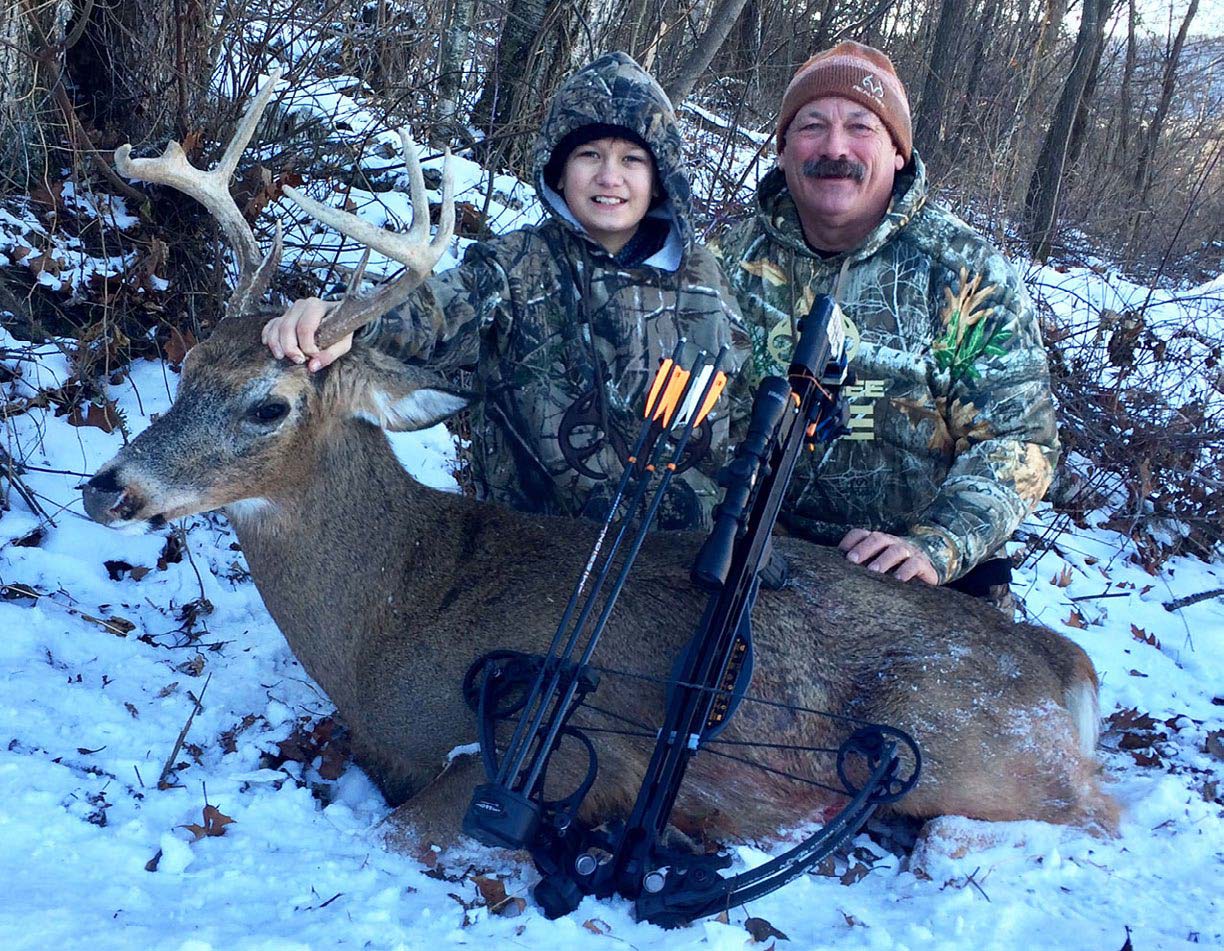
Related Articles:
The Best Crossbow Targets for Every Situation
Per our affiliate disclosure, we may earn revenue from the products available on this page. To learn more about how we test gear, click here.



